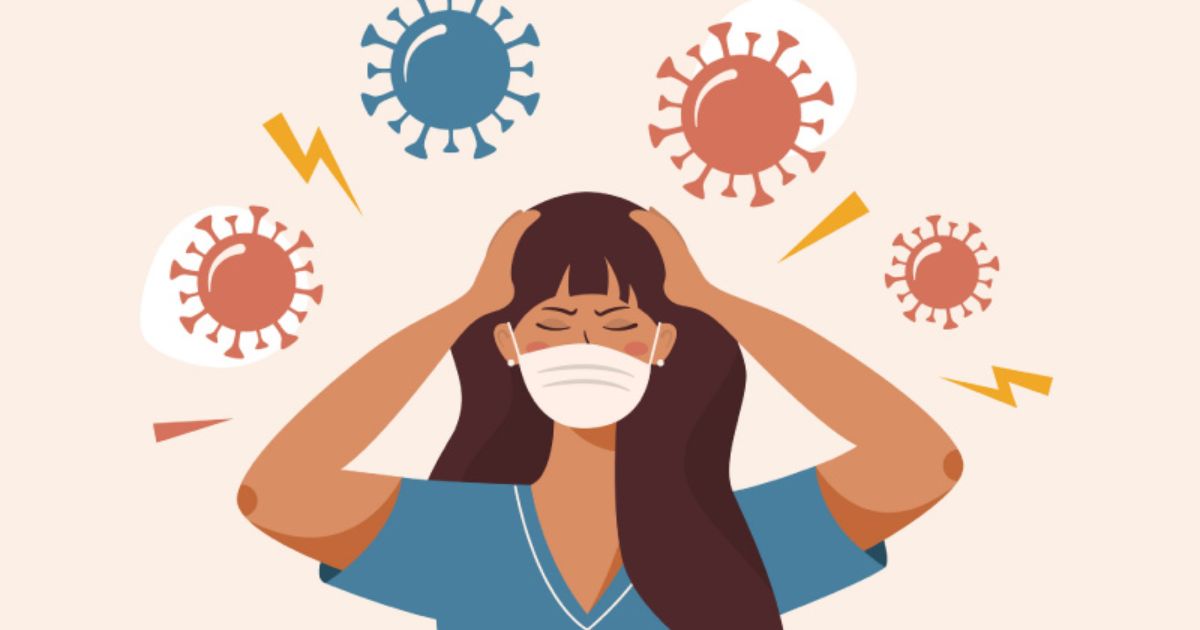The mental health sector bears the most significant impact of COVID-19 pandemic as this has seen a surge in stress, anxiety, and depression cases.
As negative consequences continue to bite, especially on work front, a study explores long-lasting impact of psychological distress on productivity focusing on UK’s remote employed persons.
Study: Unraveling Relationship between Pandemic Stress and Work Productivity
In the face of unprecedented challenges brought about by the pandemic, researchers sought to disentangle the intricate interconnection between psychological distress and work productivity.
The study drew on data from Understanding Society COVID-19 survey which explored how UK people were feeling during Covid-19 pandemic showing lasting effects of pandemic-induced stress.
2020 Findings: Early Pandemic, Higher Distress, and Lower Productivity
During early stages of the 2020 pandemic, fears of contracting COVID-19 became one major cause of increased psychological stress.
A direct association was found between such distress and less self-rated productivity at the workplace by means of this investigation.
The authors argue that psychological distress undermines an individual’s self-regulatory capability or willpower crucial for emotion control; uncertainty management as well as maintaining performance at work.
Remote Work Amplifies the Impact: Blurred Boundaries and Reduced Interactions
According to this study, over 40% of UK employees who work remotely appear more susceptible to how strain may affect their productivity.
Remote workers suffered more due in part to lack of impromptu contact with co-workers.
In remote working setups, there was limited availability of these interactions necessary for sharing knowledge and emotions support.
For remote workers, these blurred boundaries between working life and home led to further challenges.
During COVID lockdowns with home offices invading personal spaces according to this study made self-regulation difficult for remote workers thus reducing their productivity levels.
Self-Employed Struggle: Intensifying Challenges and Gender Disparities
The findings underlined that self-employed individuals were worse hit, since they already faced income insecurity, business failure risks, and long working hours and complex job demands.
The pandemic compounded these challenges making self-regulation a major problem and leading to less productivity among the self-employed.
Remarkably, psychological distress, self-employment status, and sex worked in concert with each other in that self-employed females bore the brunt of this decline in productivity. The negative effect was most pronounced among this subgroup.
Post-Pandemic Outlook: Stress Persists, New Challenges Emerge
The research reveals that even though the lockdowns of the pandemic era have now passed away, stress still continues as an underpinning factor influencing productivity.
Disease condition, death, divorce or any major life events are still stressful situations requiring continued coping mechanisms for work productivity.
Strategies for Coping and Sustaining Productivity
The following measures recommended by the study will help individuals be able to cope with stress at difficult times and maintain productivity levels:
Seek Support
Self-employed or in paid employment should seek support from their families, friends and colleagues including mental health care as well as financial support. Such networks of support can help to reduce PSYCHOLOGICAL DISTRESS.
Recovery Time and Self-Care
After stressful events it is necessary to give oneself sufficient recovery time as well as sleep priority along with taking breaks from work in order to restore self-regulation resources. This practice is helpful while coping with times of distress.
Backing Employers
Employers are key to the support of their staff. Some of these ways would include, encourage peer assistance raise levels of autonomy and provide a voice when making decisions, all to maintain the welfare and productivity of employees.
Problems faced by those working remotely
Feedback should be prioritized for remote workers as organizations recognize the peculiar challenges associated with remote work.
Hence communication should be promoted to avoid the blurring of work-life boundaries.
Self-Employed Peer Support
Women who are self-employed may find solace in peer support groups. This is because, such societies enable people to exchange ideas, deal with internal demands, and reduce work-family conflict.
Navigating the Future of Work with Resilience
The aftermath of the pandemic and its lingering effects on mental health necessitate individuals’ and organizations’ focus on self-regulation strategies that boost support systems.
A resilient approach can therefore be taken towards managing unique challenges faced by remote workers and those who are self-employed thus ensuring continuous productivity as well as welfare within a changing world of work.
To conclude, as we continue to be influenced by the long shadow cast by Coronavirus pandemic, it remains an urgent issue that individuals and organizations must consider when they want to improve productivity in a targeted way and give priority to mental health.



